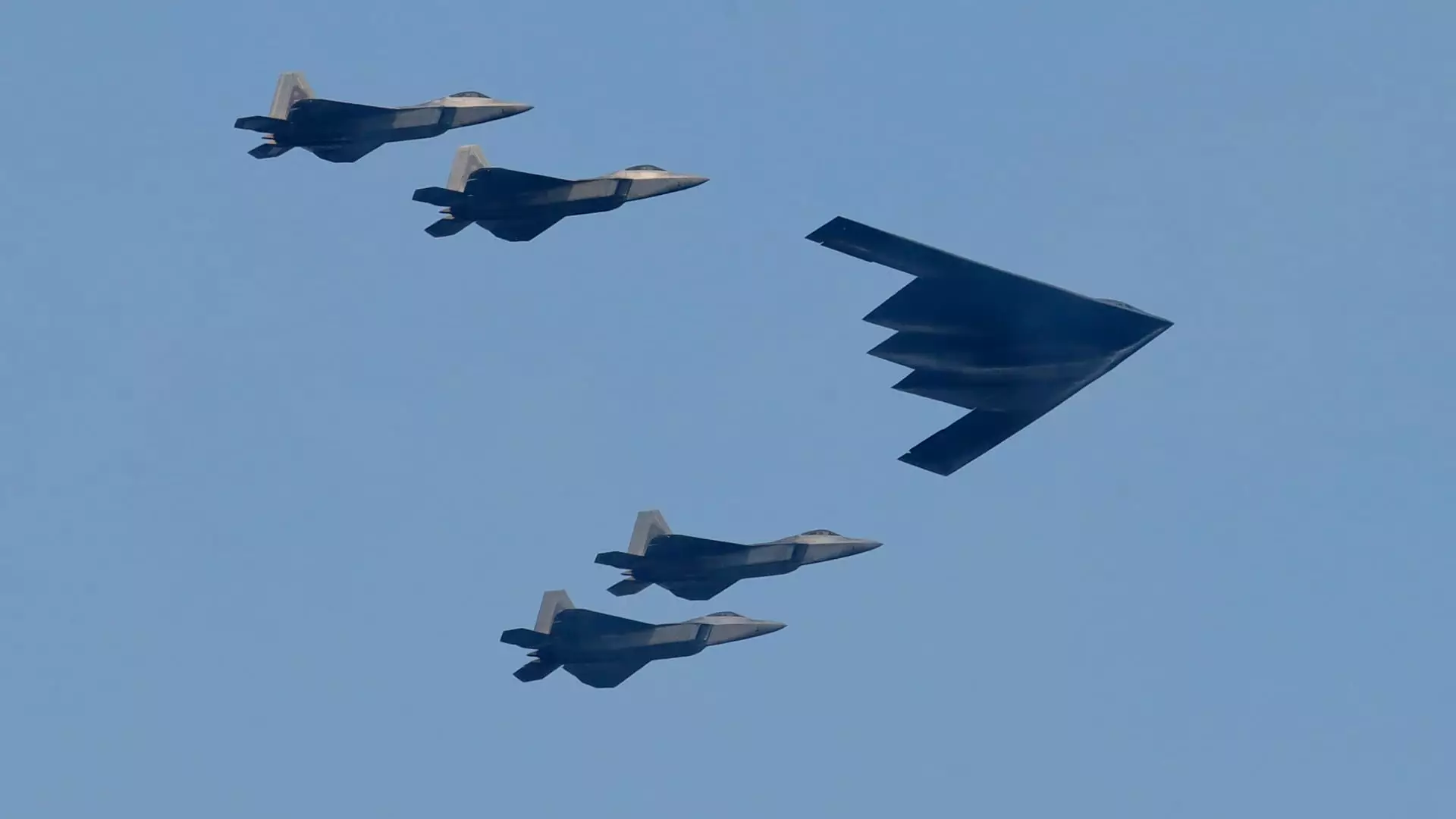The recent military strikes carried out by the United States against Iranian nuclear sites are nothing short of a reckless maneuver that could easily spark a broader conflict in the Middle East. President Donald Trump’s declaration of a “very successful attack” on three key nuclear sites, notably the Fordo facility, reflects a disturbingly simplistic view of international relations, one that prioritizes military prowess over diplomatic engagement. With global leaders reacting swiftly and decisively, it’s clear that the ramifications of this assault extend far beyond U.S. borders, posing a severe risk to international stability.
Leaders such as Israeli Prime Minister Benjamin Netanyahu lauded the attack, framing it as a pivotal moment that would redefine the geopolitical landscape. Netanyahu’s assertion that “peace through strength” is the right course of action indicates a dangerous mindset: one that values military power as a precursor to diplomatic resolution. In stark contrast, voices like United Nations Secretary-General Antonio Guterres have warned against this line of thinking, emphasizing the dire consequences that military aggression brings. His urgent call for diplomacy reminds us of a fundamental truth; real peace is achieved through dialogue, not destruction.
Able to Transform Perspectives, But at What Cost?
Venezuela’s Foreign Minister Yvan Gil has condemned the U.S. strikes, encapsulating a viewpoint that sees America’s military actions as an egregious violation of international law. With a history of U.S. interventions viewed as imperialistic, Gil’s comments resonate with those who believe this recent attack is an extension of the same reckless foreign policy priorities that have led to chaos and suffering in multiple regions globally. His condemnation raises essential questions about the so-called moral authority frequently claimed by the United States: how can the U.S. preach democracy and human rights while simultaneously engaging in acts of military aggression that create irreversible consequences for already vulnerable populations?
Cuba’s President Miguel Diaz-Canel echoed this sentiment on social media, stating that the assault is a dangerous escalation that plunges humanity further into a crisis. His desperate plea for peace underscores a critical point: when the world’s superpower decides to feel threatened and acts unilaterally, it sets a dangerous precedent. Diplomacy should always remain on the table, but this recent action risks rendering that path more difficult to navigate.
The Ripple Effects of Escalation
The U.S. strikes seem to signal an impending deterioration of regional stability, and reactions from nations such as Mexico emphasize a growing global consensus that diplomatic alternatives should take precedence over military ones. Mexico’s call for peace and dialogue aligns with a more measured approach to international conflict resolution. As tensions rise, the pressing need for collaborative solutions becomes glaringly evident; negotiation is essential to prevent the cyclical nature of violence from taking hold once again.
South Korea’s decision to convene an emergency meeting speaks volumes about the growing anxiety that events in Iran create across the globe. The fear that the situation can escalate quickly into a vastly larger conflict is palpable. The current geopolitical landscape is already riddled with complexities, and any misstep could quickly spiral towards chaos, with millions paying the ultimate price.
Illusions of Control
Trump’s bravado and unyielding belief that a show of military force can decisively resolve deep-rooted issues reflect not only poor judgment but an alarming disconnect from the on-the-ground realities faced by ordinary Iranians. The ramifications of this attack will lead not to peace, but rather to an escalation of hostilities, provoking retaliation and further military responses.
The global context surrounding U.S. military action is changing; nations around the world are increasingly recognizing the futility of resolving conflict through force. The leading commentary on social media and news platforms indicates that there is a vast discontent with militaristic approaches that undermine humanity’s collective aspirations for peace.
The landscape of international relations is, quite frankly, precarious. The ramifications of Trump’s destructive decision must resonate within every political discussion, as what unfolds in the coming days and months could seal the fate of millions. The time for dialogue is now, lest we allow political posturing to drive us toward disaster.

